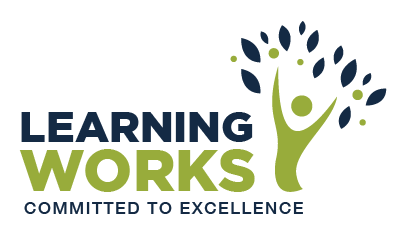Course Description
This course is for you if you are a woman who’d like to:
- Develop the confidence and skills that will enable you to step up to senior management and leadership positions.
- You are already in a management or leadership position and want to develop your skills and experience so you can progress further.
- You can be working in any sector – private – a profit making organisation, such as a hotel or bank; public – such as a local authority; perhaps you have a role in public office – a councillor or an MP, for example. The sector you work in is no barrier to joining this programme; all we ask is that you come to the programme willing to share your experiences and participate in all the sessions.
Ultimately, however, this course is about you and we’d like you to feel that you can influence the content of our programme to ensure that it meets your needs – now and in the future.
The aim of the course is to help participants:
- Develop self-awareness on their own leadership style and recognise the potential for personal change and development.
- Build strategic communication skills so they can articulate your vision, lead effectively and inspire team members.
- Identify their strengths and any limiting beliefs and behaviours
- Create a personal development plan detailing skills you want to practise and those you still want to acquire so that you can move into the future with confidence as a leader.
- Improve relationships and networking with other women in business and develop a leadership toolkit based on best practice.
Learning Outcomes
By the end of the course programme, students will be able to:
- Understanding the difference between verbal, visual and non verbal communication.
- Present information to an audience.
- Formulate concise reports to illustrate main findings and recommendations.
- Think critically on own strengths and weaknesses as a potential leader.
- Evaluate literature and other valid sources to form opinions and share knowledge.
- Analyse case scenarios and information to formulate action plans.
- Evaluate leadership styles and development potential.
- Formulate well-articulate vision.
- Apply SWOT analysis technique.
- Develop personal development plans.
- Analyse human behaviour at the place of work.
Target Candidates
The programme is aimed at women who wish to develop the confidence and skills that will enable them to step up to senior management and leadership positions. They are expected to be already in a management or leadership position and want to develop their skills and experience so they can progress further. They can be working in any sector – private – a profit making organisation, such as a hotel or bank; public – such as a local authority; or have a role in public office – a councillor or an MP, for example. The sector they work in is no barrier to joining this programme and the variety within the group will contribute greatly to the learning dynamics.
| Course Code | Duration | Credit Value | Next Intake | FT/PT |
|---|---|---|---|---|
| LW/M/013 | 12 months | 12 ECTS | March 2024 | PT |
| Contact Hours | Placement Hours | Self Study Hours | Assessment Hours | Total Learning Hours |
|---|---|---|---|---|
| 60 | 0 | 180 | 60 | 300 |
Mode of Training
80% Online, 20% Face-to-Face
Assessment
Assignments and Presentations
Awarding Body
Learning Works
Lecturers
Course Structure
Module 1: A Woman in Leadership: Discovering Your Leadership Style (2 ECTS)
The aim of this module of study is to provide students with the underpinning principles of leadership. In particular, they will be able to understand the difference between leadership and management, define and evaluate leadership and visualize goals for the future.
Module 2: Managing Work-Life Balance as a Woman in a Leadership Position (2 ECTS)
The aim of this module of study is to provide students with the ability to understand self-confidence, self-esteem and the difference between the two. In addition, students will be exposed to self-talk and it’s impact, stress in the workplace and meditation.
Module 3: Communicating Your Message With Clarity (2 ECTS)
This unit will focus on the skills needed to run an effective team. Whether you are a coach, sport administrator, captain or just a regular team player, communication, listening, leadership and basic counselling skills are vital. Participants will discuss and work together to learn how to build up their team and motivate it under pressure. Students will come up with a number of ways on how one can build team cohesion within their team. Roles and responsibilities of team members/ coaches/ administrators will be discussed as well as the importance of creating a desire for team success.
Module 4: Driving Results through Emotional Intelligence and Negotiation Skills (2 ECTS)
The aim of this module of study is to provide students with an understanding of how relationships at work are managed by applying interpersonal skills. The concept of emotional intelligence will be explained. In addition, students will be exposed to the importance of teamwork and how to build effectively working teams. Finally, learners will be exposed also to the skills and art of negotiation.
Module 5: Planning and Forecasting (2 ECTS)
The aim of this module of study is to provide students with the important skills to develop a personal development plan (PDP). In addition, students will be provided with the necessary knowledge to learn how to effective monitor and update their PDP. Moreover, learners will be able to develop their business case and plan effectively.
Module 6: Presenting a Business Case (2 ECTS)
The aim of this module of study is to bring together all the knowledge and skills learnt in modules 1,2,3,4 and particularly 5 in order to present a business case and plan effectively. Within this module, the critical importance of budgets, human resource planning and reporting will be emphasised.
Entry Requirements
Candidates must be 18 years of age and are in possession either of a relevant MQF Level 5 accredited award and/or at least 5-years’ work experience and 3 years experience in a management position. Candidates must be able to communicate proficiently in English.
A proficiency numerical and literacy skills test together with a Police Conduct Certificate may also be required.
Candidates may apply for recognition for prior learning (RPL) for up to 40% of the total credits of the award in accordance to NCFHE recommendations.


